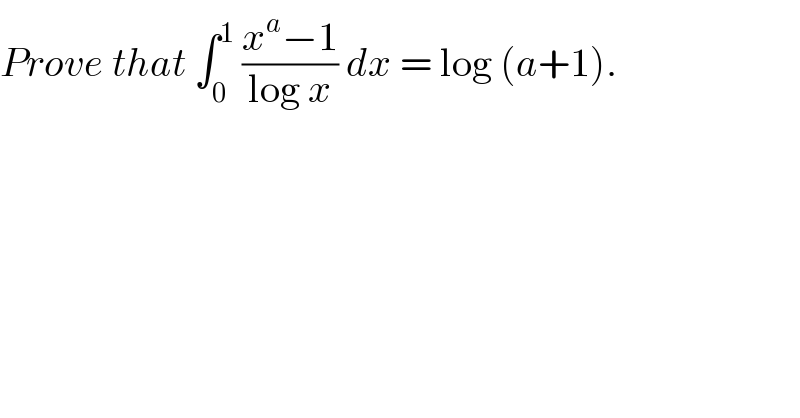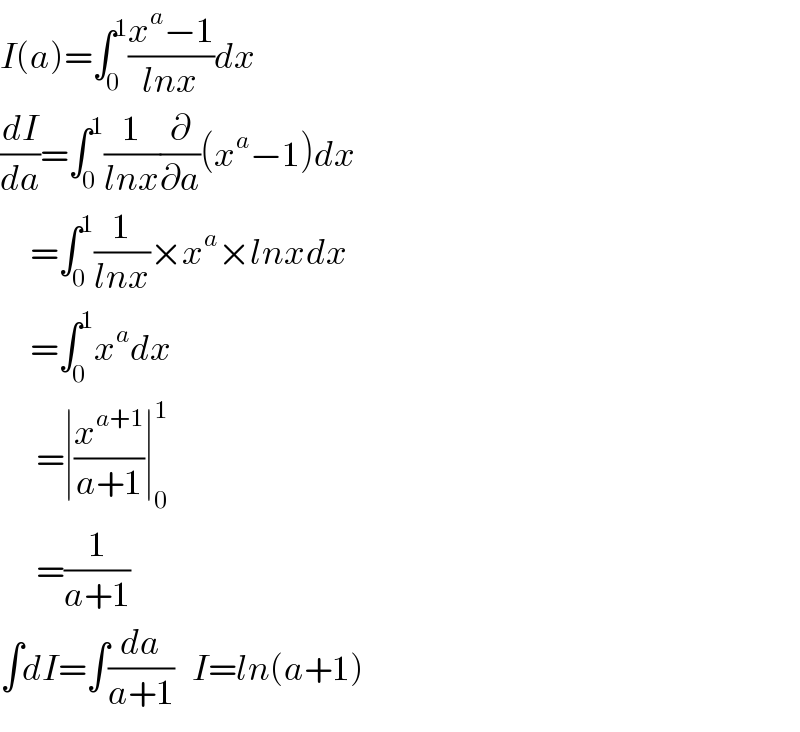
Question and Answers Forum
Question Number 45117 by rahul 19 last updated on 09/Oct/18

Commented by maxmathsup by imad last updated on 09/Oct/18
![for a>−1 let f(a) =∫_0 ^1 ((x^a −1)/(ln(x)))dx changement ln(x) =−t give f(a) =−∫_0 ^(+∞) ((e^(−at) −1)/(−t)) (−1)e^(−t) dt =−∫_0 ^∞ ((e^(−(a+1)t) −e^(−t) )/t) dt =∫_0 ^∞ ((e^(−t) −e^(−(a+1)t) )/t)dt ⇒f^′ (a) =∫_0 ^∞ e^(−(a+1)t) dt=[−(1/(a+1))e^(−(a+1)t) ]_(t=0) ^(+∞) =(1/(a+1)) ⇒f(a) =ln∣a+1∣ +c =ln(a+1) +c but f(0) =0 =ln(1)+c ⇒c=0 ⇒f(a)=ln(a+1) .](Q45142.png)
Commented by rahul 19 last updated on 09/Oct/18
thanks prof Abdo ☺️
Commented by turbo msup by abdo last updated on 09/Oct/18

Answered by tanmay.chaudhury50@gmail.com last updated on 09/Oct/18

Commented by rahul 19 last updated on 09/Oct/18
Sir , how will this come to my mind first we have to differentiate!! ����
Commented by tanmay.chaudhury50@gmail.com last updated on 09/Oct/18

Commented by rahul 19 last updated on 12/Oct/18

